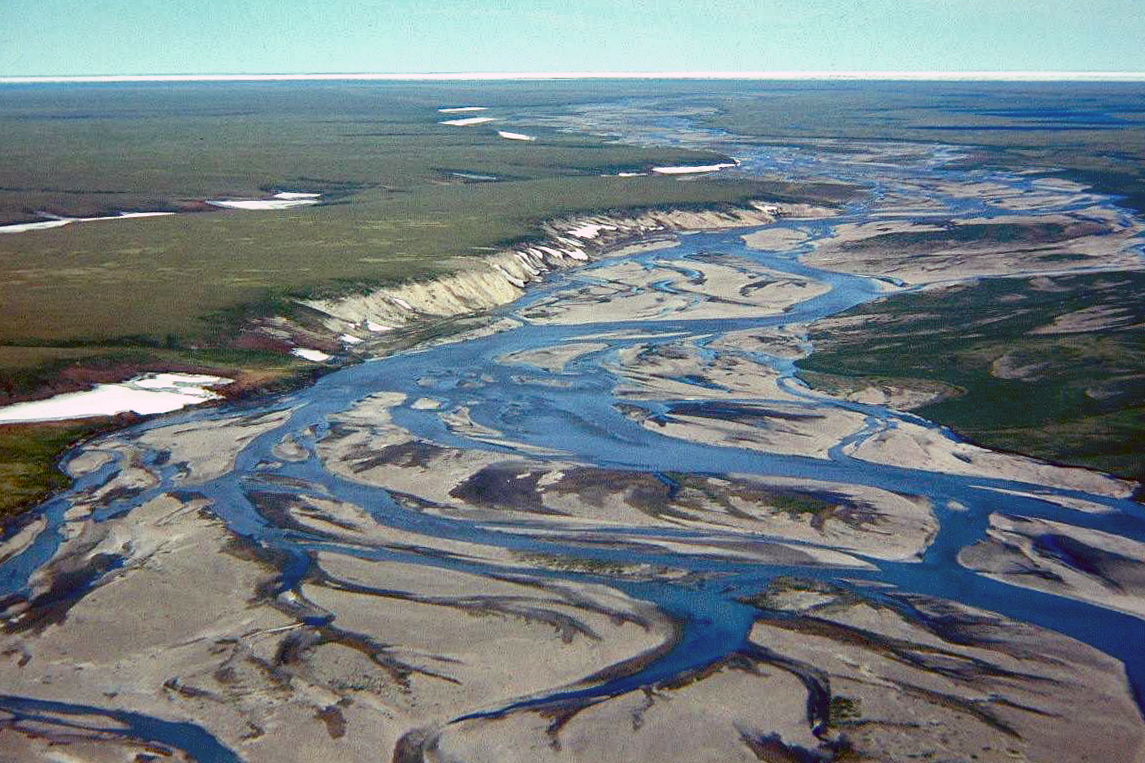Regulations for Arctic refuge oil and gas leasing could be ready soon
Expect regulations for sales in Alaska's Arctic National Wildlife Refuge, an Interior Department official told an Alaska industry conference last week.

Expect regulations soon that will guide upcoming oil and gas lease sales in the Arctic National Wildlife Refuge, a Department of Interior official said on Friday.
Steve Wachowski, Alaska adviser to Secretary Ryan Zinke, said Interior officials are working hard on moving from Congressional authorization, through the recently passed federal tax overhaul bill, to a Bureau of Land Management-led lease sale in the refuge.
“I think we have yet to appreciate the historical nature of what happened in Congress,” he said in a speech at an oil industry conference in Anchorage. “We’re very excited about it.”
Wachowski spoke at the Meet Alaska 2018 conference held by the Alaska Support Industry Alliance, the trade group for oil-support companies.
Moving from Congressional authorization to a lease sale, he said, will take a lot of work. The tax bill language authorizing leasing was only four pages long, he noted.
“That’s not a lot for government. So there’s a lot of regulation that we’ve got to figure out how to backfill,” he said. “We will be close to announcing that soon.”
National Petroleum Reserve-Alaska on the western side of the North Slope is the model for upcoming ANWR oil development, Wachowski said.
“We are going to have it managed through BLM and it’s going to be very much like the NPR-A process,” Wachowski said.
Wachowski — a lifelong Alaskan who worked in the past for the late Sen. Ted Stevens and in different capacities for current Sen. Lisa Murkowski — had some words of assurance for the pro-development crowd. Enabling oil development in ANWR, he said, is the top priority for Joe Balash, Interior’s assistant secretary for land and minerals management. Balash is a former Alaska Department of Natural Resources Commissioner and chief of staff to Sen. Dan Sullivan.
“Know that we have an Alaskan working it,” Wachowski told the conference audience.
Among those interested in progress toward ANWR leasing are the two biggest oil operators on the North Slope, even though their Alaska leaders did not make specific promises about development there.
Janet Weiss, president of BP Exploration (Alaska) Inc., said her company will be looking at the leasing options that the Department of Interior provides.
BP, in partnership with Chevron, did work decades ago in the refuge, she noted.
“Yes, BP has a lease position there. And we are quite confident that this industry can responsibly develop in that area. And we are looking forward to seeing how things move forward,” she said in her speech to the group. “We are evaluating that opportunity in light of our portfolio.”
BP and Chevron retain leases in Native-owned territory within the refuge’s boundaries. That land is the site of the only well ever drilled in ANWR, the KIC-1 well drilled south of Kakotivk in 1986. Results of the exploration drilling, which was conducted by Chevron as operator of the property, remain confidential.
Joe Marushack, president of ConocoPhillips Alaska Inc., did not mention ANWR in his speech to the conference, but in comments later said his company will also be evaluating the opportunity to lease in the refuge.
“That’s exciting,” Marushack said. “We will look at it, like we look at all leases, like the stuff we’re going right now, and see if it makes sense for us. We’re very excited that it opened up
Weiss and Marushack, in their speeches, lauded their companies’ recent progress toward producing new oil that has, in recent years, halted the decline in North Slope output.
For ConocoPhilips, much of that progress comes from exploration and development of new fields. This year is a big one for ConocoPhillips expansion, Marushack said in his speech.
“We’re going to have to biggest exploration year we’ve had since 2002,” he said.
There will be five exploration wells, seven production tests and development work preparing the GMT-1 field in NPR-A for production to start late this year, he said. Three of the exploration wells will be at Willow, one of ConocoPhillips’ big new discoveries within NPR-A, he said. “After those three exploration wells, we believe we’ll have enough information to know if we can do a stand-alone development at Willow,” he said. “A stand-alone development could be another Alpine,” the ConocoPhillips-operated field that is the third largest on the North Slope. A stand-alone development at Willow would mean another $4 billion or $5 billion in investment, he said.
The company is also embarking on a “massive seismic program” south of the Alpine field, Marushack said. And it is putting $430 million into expansion at the CD5 field that started production in 2015, he said. Production is now over 26,000 barrels per day, above the 16,000 barrel-per-day peak initially predicted for the field, he said.
For BP, Weiss said, progress comes from improved operation efficiency — which went from 79 percent to over 85 percent in 2017 — and technological advances that have allowed it to arrest the decline in production at Prudhoe Bay, the North Slope’s biggest field.
“There’s a real focus on doing base operations better,” she said.
Among the advances has been a sophisticated seismic program conducted by the Prudhoe partners in 2014 and 2015 has revealed important information about additional oil that can be produced from the north side of the field, Weiss said.
BP has been able to keep Prudhoe production above 280,000 barrels per day for three years in a row.
For that accomplishment, she said, she will sacrifice her long dark hair. She told employees a year ago that if they managed to keep 2017 production steady with that of 2016, she would shave her head.
“Tomorrow is the day, and it’s in honor of the great men and women and all they’ve accomplished at Prudhoe Bay,” she said in her Friday speech.